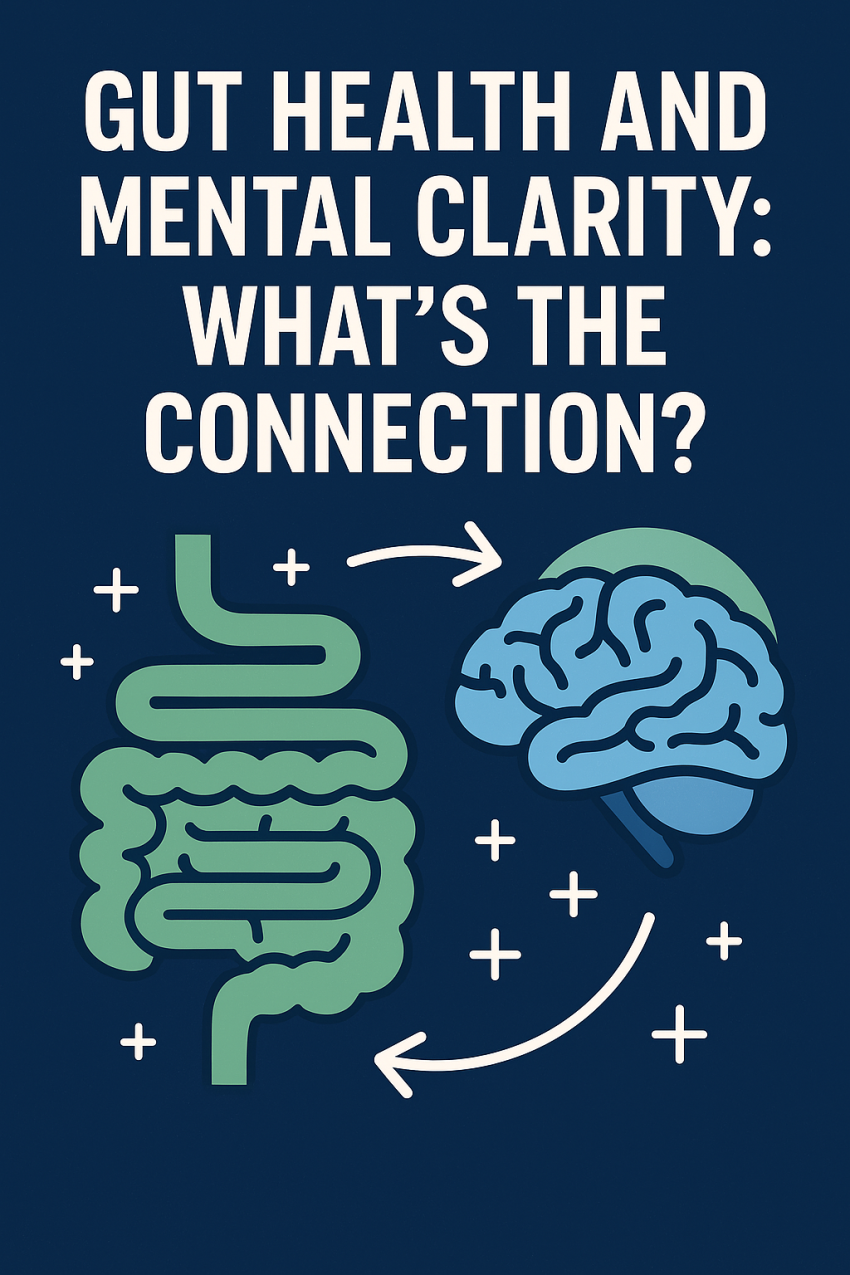Gut Health and Mental Clarity: What’s theTheme Options Connection?
The Mind-Gut Link: More Than Just a Feeling
Have you ever had a “gut feeling” or experienced butterflies in your stomach when nervous? These phrases aren’t just poetic—they’re rooted in science. Research increasingly shows that gut health plays a critical role in mental clarity, mood regulation, and even cognitive performance.
In 2025, with rising awareness around holistic health, understanding the connection between your gut and brain is more important than ever.
What Is the Gut-Brain Axis?
The gut-brain axis is a complex, bidirectional communication network between the central nervous system (CNS) and the enteric nervous system (ENS)—the “second brain” located in your digestive tract.
This axis is powered by:
-
Neural pathways (especially the vagus nerve)
-
Hormones and neurotransmitters
-
Immune system signals
-
The gut microbiome—the trillions of microbes living in your intestines
When your gut is in balance, it can positively influence mental function. But when it’s disrupted, it may contribute to anxiety, depression, brain fog, and more.
How Gut Health Affects Mental Clarity
1. Neurotransmitter Production
Did you know that about 90% of serotonin—the “feel-good” hormone—is produced in your gut?
A healthy gut:
-
Supports optimal serotonin, dopamine, and GABA levels
-
Improves mood regulation
-
Reduces risk of anxiety and depression
When gut flora is out of balance (a state called dysbiosis), neurotransmitter production can be impaired—leading to mental fatigue or emotional instability.
2. Inflammation and Cognitive Fog
Poor gut health often leads to chronic inflammation, which can cross the blood-brain barrier and trigger neuroinflammation.
This results in:
-
Slower thinking
-
Difficulty concentrating
-
Memory lapses
-
Mood swings
Anti-inflammatory diets rich in fiber and probiotics can help reverse these effects.
3. The Microbiome and Stress Response
A diverse and healthy microbiome helps regulate the hypothalamic-pituitary-adrenal (HPA) axis, which manages your body’s stress response.
Better gut health means:
-
Lower cortisol levels
-
Improved stress resilience
-
Enhanced focus and mental clarity
Signs Your Gut Might Be Affecting Your Brain
Here are some red flags:
-
Frequent brain fog
-
Trouble focusing
-
Chronic fatigue
-
Mood swings or irritability
-
Sleep disturbances
-
Digestive issues (bloating, gas, irregular bowel movements)
If you’re experiencing several of these, it may be time to evaluate your gut health.
How to Improve Gut Health for Mental Performance
Here are evidence-based strategies to support your gut—and your mind:
✅ 1. Eat More Fiber-Rich Foods
Fiber feeds your good bacteria. Aim for:
-
Leafy greens
-
Legumes
-
Whole grains
-
Bananas
-
Apples
✅ 2. Include Probiotics and Prebiotics
Probiotics add beneficial bacteria; prebiotics feed them.
Great sources include:
-
Yogurt, kefir
-
Sauerkraut, kimchi
-
Garlic, onions
-
Asparagus, leeks
✅ 3. Reduce Processed Sugar and Artificial Sweeteners
These can disrupt the gut microbiota and promote inflammation, harming both digestion and cognitive function.
✅ 4. Manage Stress
Mind-body practices improve both brain and gut health:
-
Meditation
-
Breathwork
-
Yoga
-
Journaling
-
Spending time in nature
✅ 5. Get Quality Sleep
Poor sleep alters gut bacteria and impairs brain detoxification.
Aim for 7–9 hours of deep, uninterrupted sleep each night.
✅ 6. Stay Hydrated
Water helps maintain proper digestion and gut lining integrity.
Supplements That Support Gut-Brain Health
If diet alone isn’t enough, consider:
-
Probiotic supplements (look for multi-strain formulas)
-
Omega-3 fatty acids (anti-inflammatory and brain-boosting)
-
L-glutamine (heals the gut lining)
-
Magnesium (helps with mood and relaxation)
-
Vitamin D (linked to gut and immune health)
Always consult your healthcare provider before starting new supplements.
The Future of Gut-Brain Science
In 2025, researchers are exploring exciting innovations:
-
Personalized microbiome testing
-
AI-driven gut health analysis
-
Psychobiotics – probiotic strains specifically targeted to enhance mental health
-
Fecal microbiota transplants (FMTs) – already being used for severe gut disorders, with cognitive benefits being studied
The more we understand this intricate connection, the better we can treat not just mental illness, but also optimize human performance.
Final Thoughts: Heal the Gut, Clear the Mind
The connection between gut health and mental clarity isn’t just a trend—it’s backed by science. Your mood, memory, focus, and stress levels are deeply linked to what’s happening in your digestive system.
By improving your gut microbiome with the right foods, habits, and mindset, you can unlock greater clarity, calmness, and cognitive power—naturally.
Healthy gut, healthy brain. It all starts from the inside out.
#Health #GutBrainConnection #MentalClarity #Microbiome #HolisticWellness


Such a fascinating topic! I’ve always heard that “you are what you eat,” but this article really explains why that’s true on a deeper level. The link between gut bacteria and brain function is something I never fully considered before. Definitely inspired to make some changes to my diet and focus more on gut-friendly foods!
This was such an eye-opening read! I had no idea how closely gut health and mental clarity were connected. The way you explained the gut-brain axis made it really easy to understand. Definitely going to be more mindful of what I eat from now on — thanks for shedding light on such an important topic!